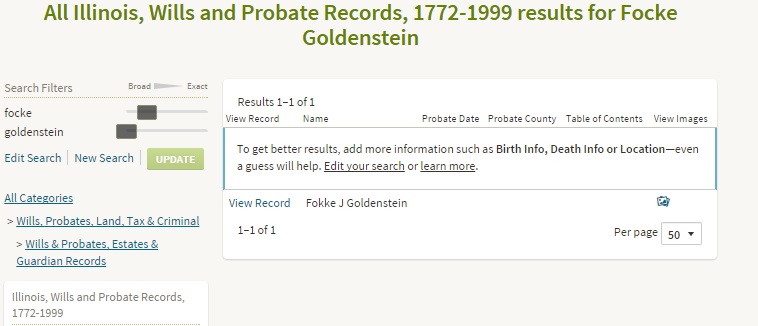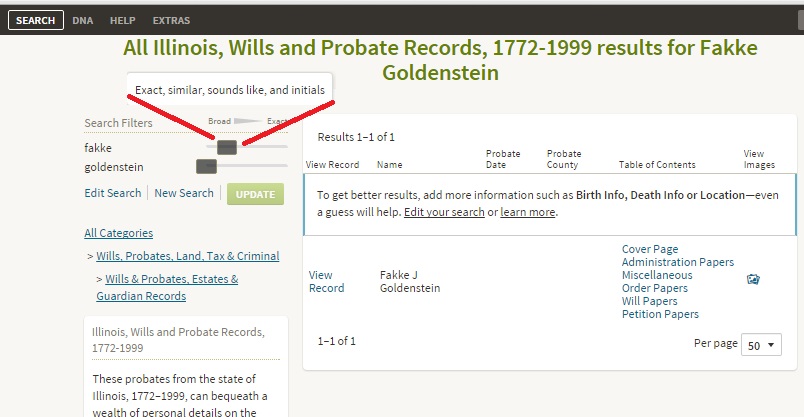When searches do not work the way I think they should I get confused. I’m confused again.
Searches based on names that sound alike other names were created for those names that are spelled in a variety of similar ways, particularly ones that are not in the writer’s native language. Soundex, “sounds alike,” and other phonic-based searches are supposed to catch results that are similar in “sound structure” to the search term.
So a search for Focke Goldenstein in the “Illinois, Wills and Probate Records, 1772-1999” at Ancestry.com should locate Fokke Goldenstein. And it did. No problem.

The problem was that when I viewed that record, I knew there should be more probate materials for Focke than simply the petition of his wife to settle his estate. There should be inventories and other records. And while it was possible that Ancestry.com did not digitize those records, I thought it odd that Focke’s were not there. I had found other records from the same county online for the same time period. I decided to experiment with the search box before I went to Ancestry.com‘s online inventory to determine if they had the records for the time period in question.
It turns out that was not the problem–they had the records I wanted.
The problem: the other records were indexed under “Fakke Goldenstein.” Now this wasn’t hard to find as it was easily located searching only for the last name. That’s not quite the point.
A “sounds like” search for Focke should find Fokke. It should find Fakke as well. After all the only difference is a vowel and vowels are typically ignored on “sounds like” searches.
Results like this make me wonder.

Note: All searches were conducted at 2:00 pm Central Time on 10 September 2015.

No responses yet